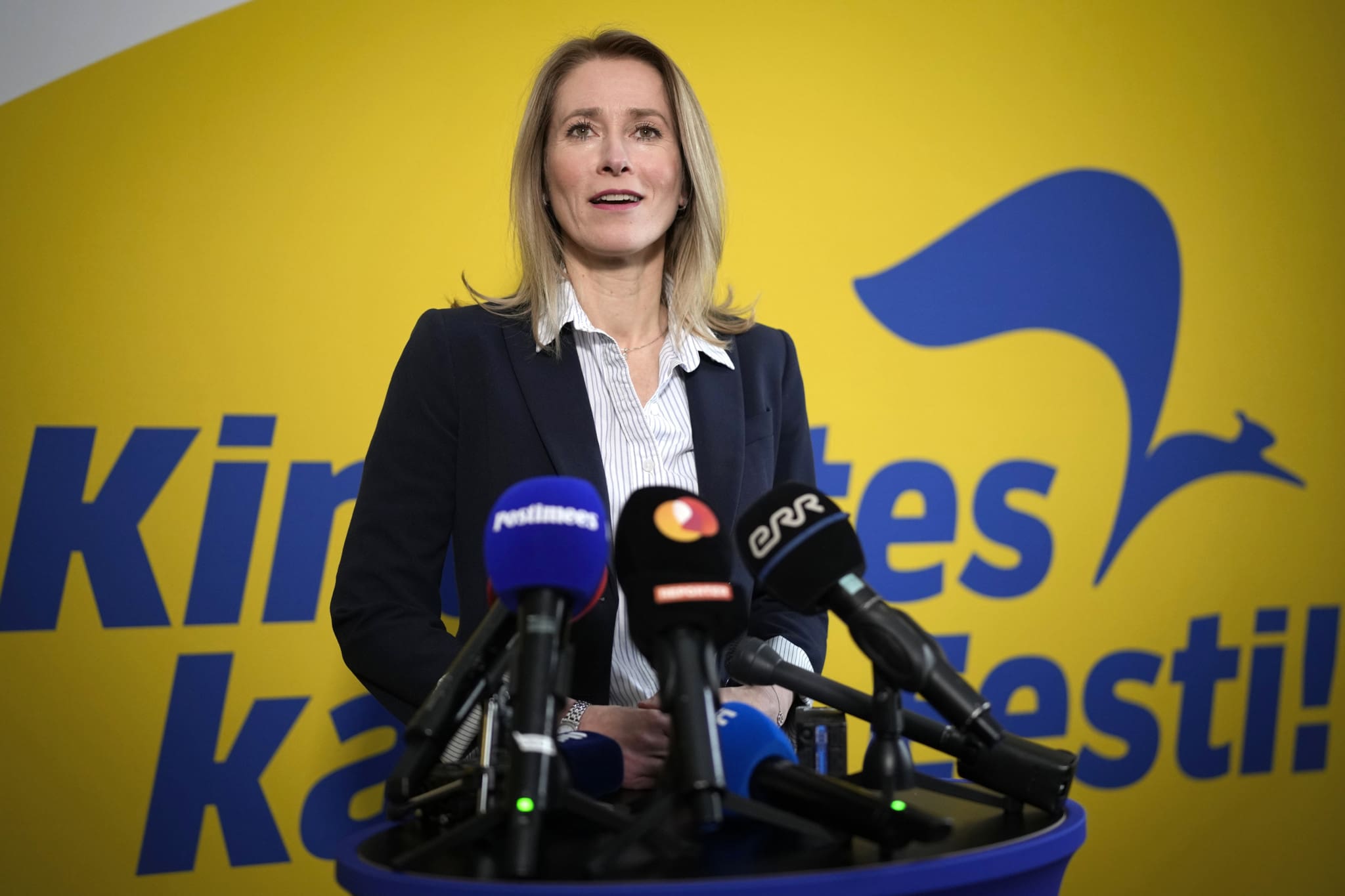Estonia’s Prime Minister Kaja Kallas won a landslide victory in the national election on Sunday, securing 31.2 percent of the vote with a manifesto pledging maximum support for Ukraine and NATO.
The Estonian leader’s center-right liberal Reform Party comfortably staved off competition from the Conservative People’s Party of Estonia (EKRE), a right-wing, populist party that had campaigned against further arms deliveries to Ukraine and criticized the government’s decision to take in large numbers of Ukrainian refugees.
EKRE secured 16.1 percent of the vote, and the Christian People’s Party (KRE) came third with 15.3 percent.
Both main opposition parties saw a drop in their support from the 2019 election, while Reform’s support increased by 2.3 percentage points.

The election victory for Kallas’ Reform Party was expected, and the party maintains its position as Estonia’s largest parliamentary party, a position it has held since 2007. The nature of the victory, however, surprised politicians and pollsters alike.
“This is much better than we expected,” Ms. Kallas said.
A poll conducted by RAIT Faktum & Ariko last month predicted victory for Reform with 24 percent of the vote, while EKRE was estimated to come a close second with 22 percent.
The election came at a time when inflation in Estonia had peaked at 18.8 percent, a situation used by EKRE to criticize Reform’s unwavering support for prolonging the conflict in Ukraine.
“People are really scared about the future, and the main parties, especially the governing parties, have no real answers,” EKRE leader Martin Helme said ahead of the vote.
He promised voters his government would continue to support Ukraine but would not accept any more Ukrainian refugees, saying the 62,000 Ukrainians who entered the country last year had placed an “enormous strain on our budgets, our accommodation, our education system, our medical system, but also our overall cultural picture.”
[pp id=46558]
Kallas, a staunch ally of Ukrainian President Volodymyr Zelensky, remained defiant in her support for Ukraine, and her government has provided military assistance to the country equal to more than 1 percent of Estonia’s GDP, the largest contribution from any country relative to GDP.
“I think with such a strong mandate, this will not change,” Kallas told reporters after Sunday’s victory.
“My biggest competitor thinks that we shouldn’t help Ukraine, we shouldn’t support Ukraine, we should only look out for our self-interest.”
The Estonian leader reaffirmed that she will not seek to form a government with Helme’s party.
“We have ruled out a coalition with EKRE, and I stand by my words,” she added, a position that paves the way for a possible liberal coalition with Estonia 200 (E200) and the Social Democratic Party (SDE).
The Estonian national election saw the majority of voters cast their ballot online for the first time in history, as 51 percent of the electorate opted to vote digitally.
Digital voting has become increasingly popular in Estonia since its introduction in 2007 when 5.5 percent of the electorate opted to vote online.






